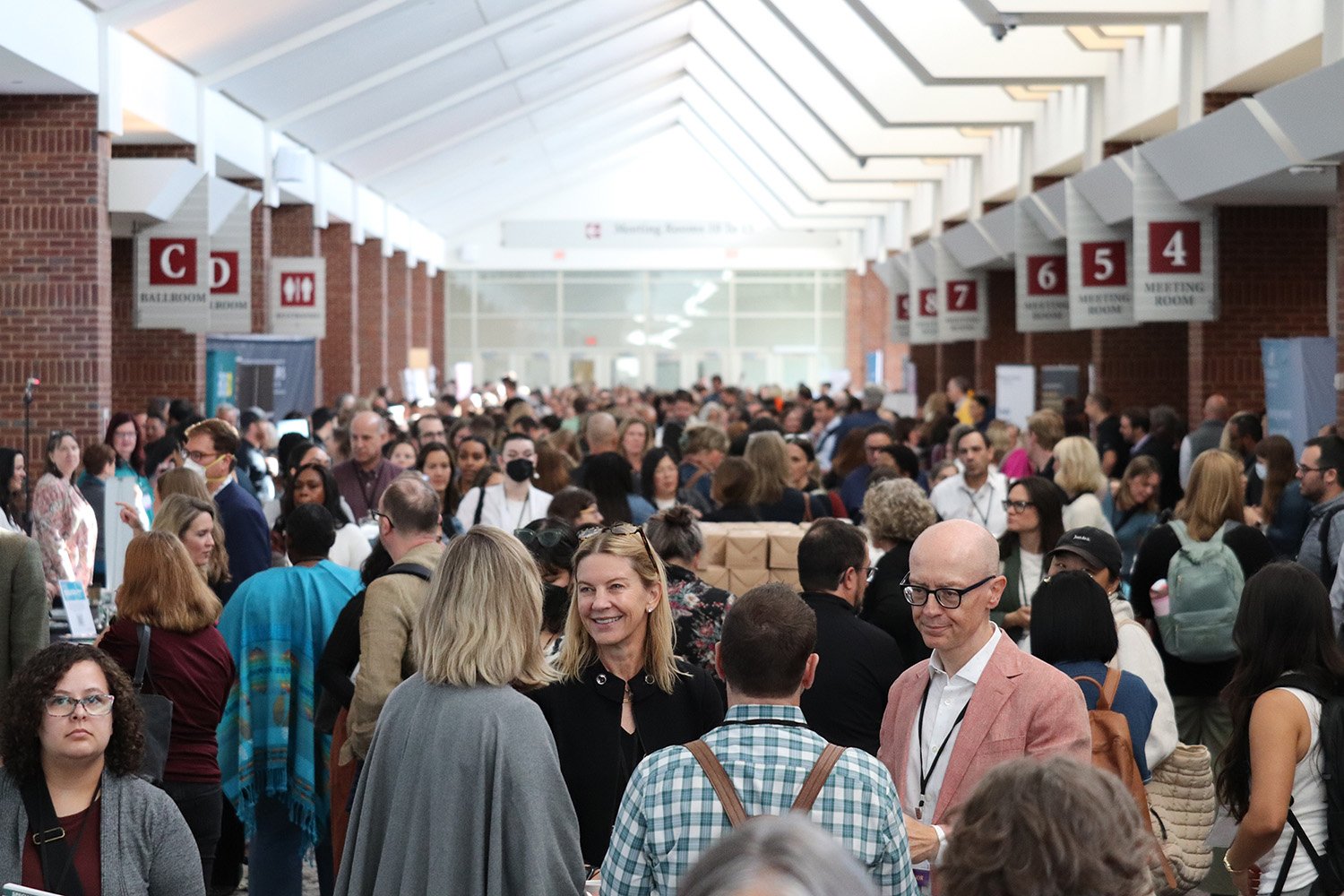Reflections on leadership, learning, and belonging from Minnesota’s largest gathering of nonprofit professionals.
Introduction
The 2025 Minnesota Council of Nonprofits Annual Conference brought together over 1,300 nonprofit leaders, staff, and partners from across the state to reflect on what it means to be “Perennial: Here, Rooted, and Unwavering.”
As someone deeply engaged in arts leadership and community impact work, I found the conference a timely opportunity to connect, learn, and refocus on how we continue to grow resilience and imagination in our sector—especially amid changing landscapes in funding, technology, and community needs.
Session Reflections
Rooted & Resilient: Leading With Clarity Through Change
This breakout session was led by Lissa Jones-Lofgren and Amanda Ziebell Mawanda from the Shannon Leadership Institute, and they shared practical tools to stay grounded, lead with purpose and navigate challenges without losing our values. Participants left with stragegies to support our well-being and sustain our impact. I found this especially compelling, as the LRAC Board was set to meet in an annual retreat later in the month.
Image courtesy of Minnesota Council of Nonprofits
Day 1 Keynote: Learning from Each Other to Build a Powerful Future — A Conversation Among Peers
Nonoko Sato, President & CEO of MCN led the opening session celebrating the collective power of the nonprofit network in Minnesota, and emphasizing the hope that organizations bring to our society in a time of unprecedented pressure on the sector nationwide. She articulated the challenges that Minnesota’s nonprofits face navigating an increasingly polarized and unpredictable envirionment and highlighted that we are not alone in this uncertain time. She went on to assure the audience that nonprofits show up for people, we dare to lift up those who need us most. We are the connectors, the translators, the stewards, the mentors and the storytellers. In order to strengthen our network, we must continue to invest in our most valuable assets—the people in our circles. In my case, that is the people of the Lake Region and the collaborative network we’re part of throughout the state. We align our values with our activities, and provide care, courage and imagination as we defend the arts in our communities. This is the way, Sato said, that we defend our democracy and perpetuate the important work that we do.
In a panel conversation following the keynote, arts leaders from Virginia, Alabama and Tennessee discussed the bridge-building that we’re all about, urging us to continue our work, expand our networks and energize the changemakers in our lives. They encouraged us to continue building relationships with legislators and the other sources of support for the work we do. The conversation expanded on topics such as the messages that funders and decision-makers need to hear, providing hope and help for future leaders, including young people, and encouraging all of us to show up and find courage even in the most mundane situations. Nonprofit leaders should keep affirming each other, have hope in humanity and speak the truth in our work.
A Nonprofit Leader’s Roadmap to Integrating AI in Operations
Kathleen Buelt and Heidi Leach, with RSM and Lutheran Social Services of Minnesota offered strategies to organizations as we navigate the expanding role of Artificial Intelligence in society. They led us through a short history of AI and the applications in which it’s being used, and emphasized that using AI in the nonprofit world is meant to enhance jobs, not replace. They offered suggestions for using AI in some of the tasks that we already do, and shared some of the risks that may result from over-use and over-reliance.
Image courtesy of Minnesota Council of Nonprofits
Day 2 Keynote: Hope and Imagination — Evolving Nonprofits and Philanthropy for the Fights Ahead
The keynote on Friday was presented by Vu Le, creator of NonprofitAF.com, a blog for nonprofit leaders and author of new book on the challenges in nonprofit work and philanthropy that are present in the current climate in the United States. His no-nonsense observations fired up the audience to not sit back and let the sector be wounded and downgraded. He encouraged us to be loud, brave and courageous, to name the things that threaten us, and not to let our imaginations be supressed. Nonprofit leaders must keep ourselves motivated to work, even when “everything seems to be on fire.” Nonprofits are the air that help communities breathe, and we all need to do more advocacy for what matters. The rainy day is here, Vu states! We must all embrace equity as a form of liberation, and the arts imagine what’s possible. Instead of only seeing the “awful stuff”, we must “show the good stuff”. His closing advice was to “resist every single day, bend toward justice and stay aligned to your values.”
Belonging Across Generations
This thought-provoking session led by Andrew Zhao from AmazeWorks asked participants to articulate the assumptions we make about different generations, and how we can navigate tough conversations around power, privilege, and identity. There are certain things shared by each generation’s lived experiences, including generalizations we have about other generations. He led us through some conversations around key traits of each generation, and how intersectionality shapes our experiences of ageism. He offered some ways to move from perception to perspective as we build more inclusive workplaces.
Reinvention as Resilience: Leading Through the Pivot
Ronda Disch from Disch Consulting and Alpha Emergence Behavioral Health guided participants of this breakout through a practical framework for scenario planning in organizations, including values-based decision-making to help adapt and thrive in uncertain times. She stressed that organizations must always be aligned with a core mission, and that leaders are often called upon to forge new paths with purpose and reslilence in times of great change, whether funding falls short or other systems fail.
Closing Reflection
As I left the conference, I felt renewed gratitude for being part of Minnesota’s strong nonprofit network—one that continues to adapt, share, and stand firm in its commitment to community good. The sessions reminded me that true resilience isn’t about simply surviving—it’s about staying rooted in purpose while continually evolving.
The Perennial theme resonates deeply with the work we do at Lake Region Arts Council—nurturing creativity, cultivating relationships, and sustaining the arts ecosystem so that it can keep blooming year after year.
This post by Timothy Wollenzien, Ph. D., originally appeared on the Lake Region Arts Council blog, where we share stories and reflections from across our region’s creative community.




